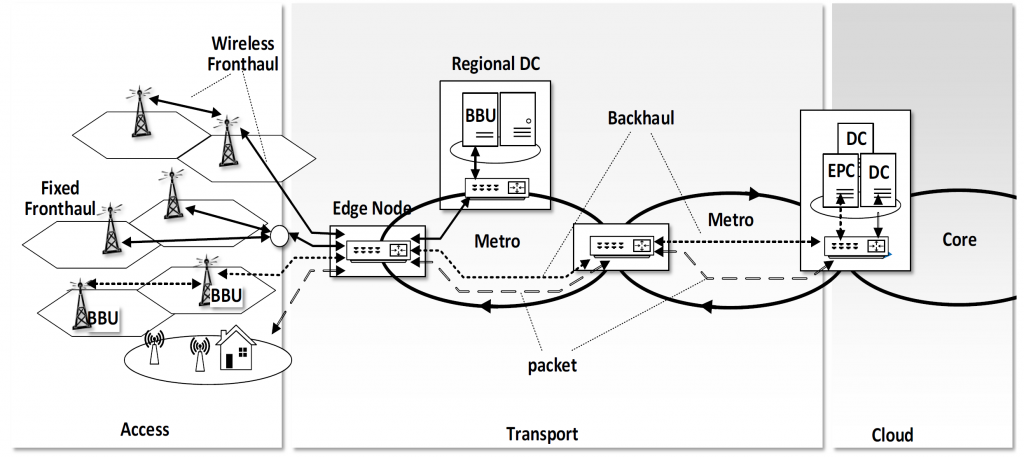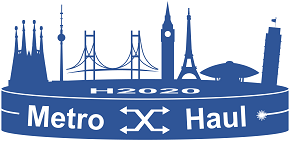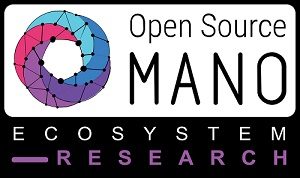Introduction
METRO-HAUL involves the design and development of a novel, spectrally efficient and adaptive network solution, using dynamic elastic optical networking, including both transparent and flexible optical switching and adaptive transmission. METRO-HAUL will address the granularity mismatch between the wireless access and the optical metro domain via a new edge node design (Figure 1), and achieved through dynamic optical bandwidth allocation. This will provide metro support for increased volume of services with reduced cost and energy consumption.
 Figure 1. Metro Network Supporting RANs, with distributed DC and virtualized / pooled BBUs and EPC
Figure 1. Metro Network Supporting RANs, with distributed DC and virtualized / pooled BBUs and EPC
To support the required dynamicity and flexibility, the METRO-HAUL architecture will be developed to integrate a wide range of optical technologies. These will be controlled using automation schemes and programmability features that will enable concepts such as HW disaggregation and virtualization, the coordination of which will be supported by a purposely designed control plane. Optical nodes will be dynamically adapted to the needs of specific services, optimally exploiting the data plane through use of relevant data monitoring and analysis schemes.
The control plane will be also responsible for the provisioning of 5G and vertical industry services that require the allocation of heterogeneous compute, storage and networking resources and ensure the required end-to-end QoS and QoE levels for each application. The METRO-HAUL control plane will leverage on the well-established SDN and NFV paradigms and exploit the benefits of a unified system, coordinating networking, computing, storage, transmission, and switching aspects, enabling abstraction at different levels.
Through the combination of improved, elastic-based optical techniques and intelligent, dynamic management of 5G applications, METRO-HAUL will support more than100 times the capacity of current metro networks.
METRO-HAUL will perform PoC demonstrations to illustrate its network solution, metro node prototypes, novel optical transmission technologies and associated control plane / orchestration software. Detailed performance evaluation of both data and control planes will be carried out. The final project demonstrations will also involve the demonstration of real 5G and vertical services across the METRO-HAUL test-bed. Finally, the project will actively participate in the relevant standardization bodies to promote METRO-HAUL solutions to the wider community.

